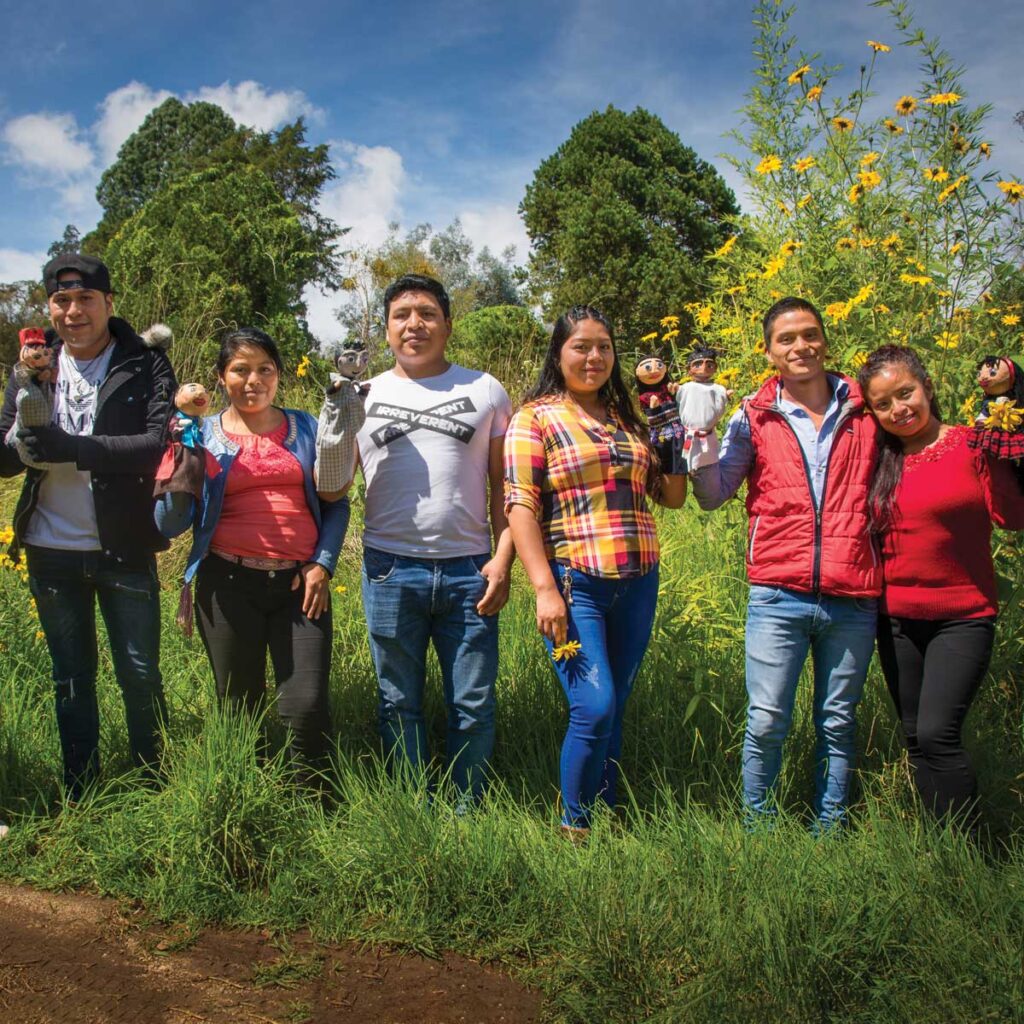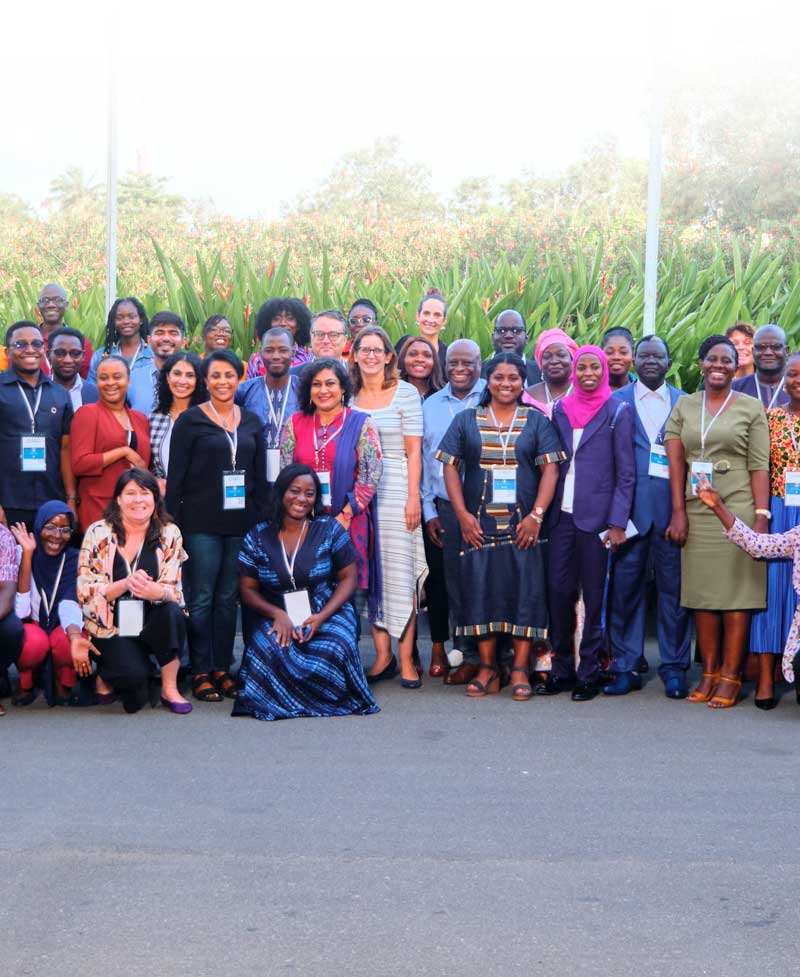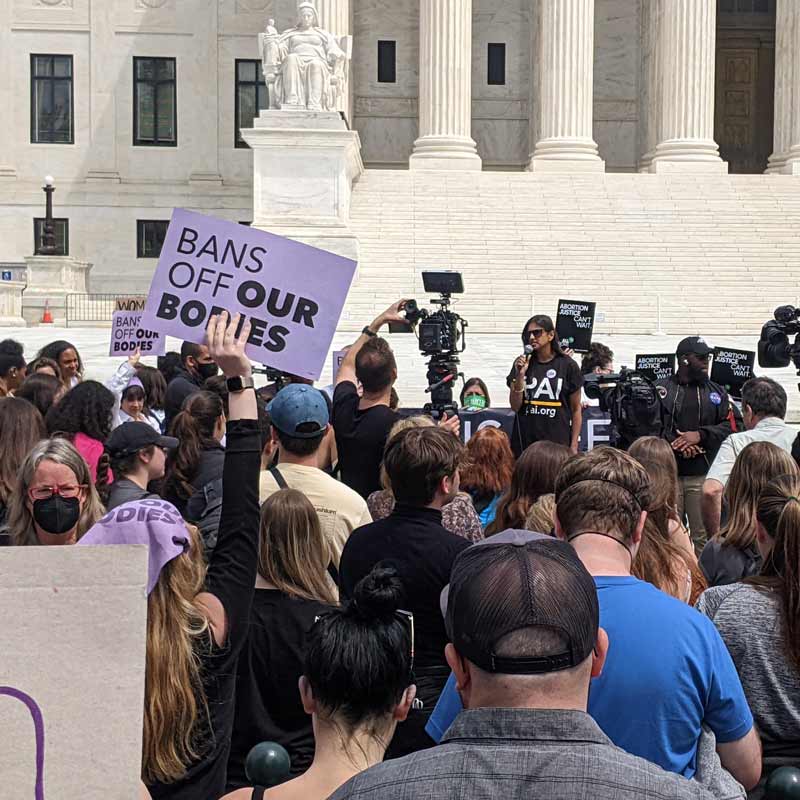

STORY 2
powering representation
Everyone deserves bodily autonomy — regardless of their age, gender, sexual identity, physical ability or economic status. But protecting those rights takes a well-resourced and unifed movement.
That’s why PAI focuses on funding and resourcing civil society- and youth-led organizations that can ensure that underrepresented voices are seen, heard and amplified — enabling a multiplier effect of civil society organizations and networks championing rights and effective representation globally.
Empowering Indigenous Youth in Mexico
Empowering Indigenous Youth in Mexico
PAI and our partner Observatorio de Mortalidad Materna en México (OMM) know Indigenous youth can be agents of change — but stigma, language barriers and the elimination of comprehensive sexuality education in schools complicates their ability to access contraceptives. This has led to very high teenage pregnancy rates in some Mexican states like Chiapas, where inequities in sexual and reproductive health information and services abound.
To address this, in 2022 PAI supported OMM to launch Sin Pena Sin Miedo (Spanish for “without shame, without fear”) — a series of podcasts, videos and social media posts created by and for young people on social media platforms such as Facebook and TikTok. The campaign covers topics like adolescent pregnancy and contraceptive methods, as well as access to health services and the right to care. The content is produced in Tseltal and Tsotsil, two Indigenous languages widely spoken in Chiapas, as well as Spanish.
To ensure these critical messages reach as many young people as possible, OMM is tapping into its network of fellow civil society champions to help spread the word. For example, in partnership with Grupo Estatal para la Prevención del Embarazo en Adolescentes (GEPEA), OMM has been leading efforts to create an information bank where members can easily access and disseminate one another’s videos, guides and other materials.

: In support of the World Bank/GFF partnership, PAI facilitated a critical dialogue in Accra, Ghana, among more than 70 civil society- and youth-led organizations spanning 35 countries to advance health priorities for women, children and youth. (Photo by @iamadinkra x @Fooveo)
In 2022, PAI was officially named the NGO Host of the World Bank’s Global Financing Facility (GFF), following our efforts since 2018 to support civil society- and youth-led organizations to better engage with global mechanisms and national policymakers to deliver health and rights for all. Supporting the advocacy priorities of more than 550 civil society- and youth-led organizations across 36 countries, this partnership elevates local voices and community-driven accountability mechanisms to achieve sexual, reproductive, maternal, newborn, child and adolescent health and nutrition goals at scale.

In support of the World Bank/GFF partnership, PAI facilitated a critical dialogue in Accra, Ghana, among more than 70 civil society- and youth-led organizations spanning 35 countries to advance health priorities for women, children and youth. (Photo by @iamadinkra x @Fooveo)
In 2022, PAI was officially named the NGO Host of the World Bank’s Global Financing Facility (GFF), following our efforts since 2018 to support civil society- and youth-led organizations to better engage with global mechanisms and national policymakers to deliver health and rights for all. Supporting the advocacy priorities of more than 550 civil society- and youth-led organizations across 36 countries, this partnership elevates local voices and community-driven accountability mechanisms to achieve sexual, reproductive, maternal, newborn, child and adolescent health and nutrition goals at scale
Empowering Youth Advocates in Mauritania
Empowering Youth Advocates in Mauritania
Mauritanian youth face multiple barriers in accessing contraceptives and other reproductive health services. One of the poorest countries, more than 11% of the population is food insecure, and strong cultural taboos challenge conversations about and access to sexual and reproductive health services.
Until recently, they were also frequently sidelined as leaders in the sexual and reproductive health and rights movement, and not involved in conversations about how to navigate essential change.
To change this paradigm, PAI provided coalition-building guidance, enabling the creation of OSC GFF Mauritanie, a nearly 400-member strong coalition developed by Association de Mauritanienne pour la Santé de la Mère et de l’Enfant (AMSME) and Association Mauritanienne d’Aides aux Malades Indigents (AMAMI). Since its inception, OSC GFF Mauritanie has been unlocking young people’s potential to meaningfully participate in the GFF process as advocates through trainings, workshops and learning exchanges that PAI is supporting.
This support enabled the bright, young leaders in OSC GFF Mauritanie to score a major win in 2022: The Mauritanian government officially prioritized the health needs of young people for the first time in its GFF investment case. This signals the Mauritanian government’s strong
commitment to expanding the availability of modern contraceptives, as well as screening and treating sexually transmitted infections, among youth.
thank you
In 2022, the right to bodily autonomy and reproductive health was attacked like never before. But despite these threats, PAI, our network of partners and this global movement remain strong.
You are an important part of this movement, and we are grateful for your support in 2022. We still face challenges. But — with you by our side — our movement is unstoppable.
Members of a women’s group in India enjoy a lighthearted moment after a training session on sexual and reproductive health and rights. (Photo by Sala Lewis for PAI)


